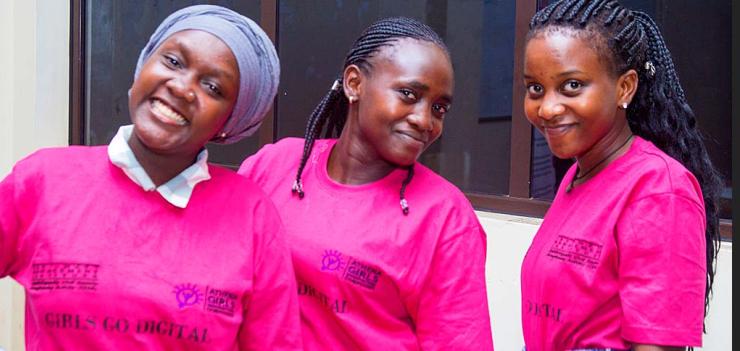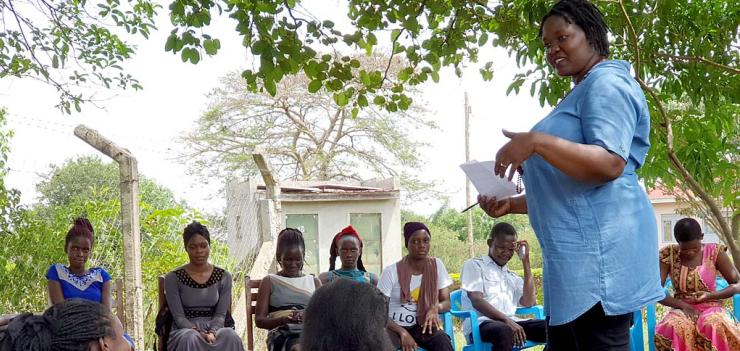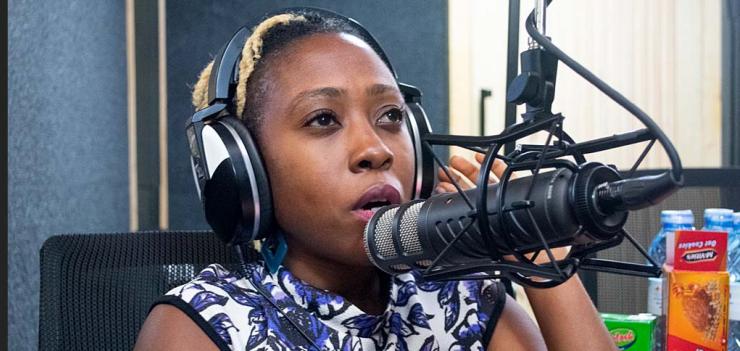“It’s still magic even if you know how it’s done”, Says Author Terry Pratchett.
The teenage girls in Lira, Northern Uganda, will probably tell you technology is even more magical once you know how it’s done - as they have not only attained digital literacy but have gone on to develop a mobile application that shall link rural girls to online markets to sell products they produce locally, as well as create space for mentorship.
Yet still, that’s not the only magic to arise from GUIDE (Giving Rise to Ugandan Indigenous Direction & Experience), USAID/CSSA’s cutting-edge 12-month leadership program. From empowering rural girls with digital literacy, helping community members register a community-based organization, and creating safe spaces for largely ignored mental health conversations, the USAID/CSSA GUIDE program has had such an impact on the participants that, according to them, they previously only dreamt of.
“Empowering rural girls on digital literacy has always been my passion, but I did not have the opportunity or funding to do it”, says Harriet Adong, one of the GUIDE participants. “So, bringing this idea to reality was a very big dream come true. I am very grateful for the USAID/CSSA GUIDE program”.
Harriet, however, says even more magical and powerful than that is the impact GUIDE has had on her as a person, helping her discover her inner self, in a process that she defines as 'humbling'.
“I literally found myself in the GUIDE program”, says Harriet, “The growth, learning, and networking experience has been humbling, quite frankly.”
“When I applied for this program, I was at a point of total burnout and depression, because the organization I lead (as Executive Director) had been greatly affected by Covid 19 and there was no Funding coming through. So, I saw this as an opportunity to keep sane”
“Coming from Lira district across the country from the capital, I wasn’t even sure I was going to make it. And then when I did, right about the time we were to start implementation, I fell so ill. I had a major surgery, and I could not do any work, and mentally that hit me so hard. I lost a month, I hadn’t done anything, and it was very depressing”, she recounts.
“But when I opened up to Sophie Kange, who was my mentor from the (USDAI/CSSA) team, she was very supportive in so many levels in helping me to pick up”, she says, “And that experience left me a totally new person”.
“The GUIDE program is not the kind of program where they just give you money and demand for results. It’s a program that cares about the well-being of the fellows and their personal growth and development, and I have been a huge beneficiary. I realized I did not even know who I was until we did that self-assessment, and the assessment that was done by our mentors”, Harriet adds.
“Among the many aspects, I also learned something very special about developing my individual plan which I will surely tell you I never knew about. It taught me the importance of self-reflection as a leader. I also learned about developing a transitional plan in my organization and creating an organization where we promote inter-generational leadership, while mentoring and building the confidence of the young people”.
As part of the GUIDE program, each participant came up with a project proposal and USAID/CSSA gave them each a grant (UGX 1 million) to implement. It is such a delight that the 30 girls from Lira district under Harriet’s project (Enhancing Basic Digital Literacy skills for Teenage Girls in Ojwina Division Lira District), have not only been introduced to digital literacy, but are developing a mobile application that they have name AGIC-BIZZ, that will support the girls to connect them in different aspects, creating a mentorship space and linking them to online markets to sell the products they produce locally.
“As I speak now, the girls are finalizing the prototype, and I am so thrilled about it because it is the GUIDE that brought out the power of creativity in these girls, who are very passionate about solving the problems in their community”, Harriet says.
Harriet says the mentorship and training she got from Sophie on writing a winning proposal has also borne fruit.
“I wrote a proposal and we got funding to buy computers to set up the girls’ digital innovation space. So basically, the GUIDE program supported the process for us to get more funding”, she says, adding that the donor preferred anonymity.
“My learnings and experience from the GUIDE program have also strengthened the organization that I am employed at as much as AGIC, which I am trying to nourish - and I shall forever be grateful to USAID/CSSA for this”.
The GUIDE program is designed to challenge the present state of affairs in which Ugandan CSOs often operate, by creating opportunities for powerful, thoughtful, and strategic collaboration among leaders representing diverse communities. GUIDE prioritizes the participation of women, younger leaders, and leaders who live and work in rural communities.The twenty (20) inaugural participants were selected to represent different communities, ethnicities, age groups, and thematic areas of the Ugandan civil society. They participated in state-of-the-art learning experiences built around the country’s demonstrated civil society sector needs.
Olive Namutebi, one of the participants through her project helped her community to register a Community Based Organization to foster growth, whereas another participant, Denise Kecho, who has gone through the painful trauma of losing an unborn baby twice, started a podcast that provides sharing and healing space for other women going through similar plights. And these are just a few of the examples of the impact GUIDE has had on the participants and their communities.



